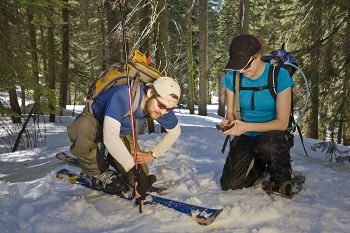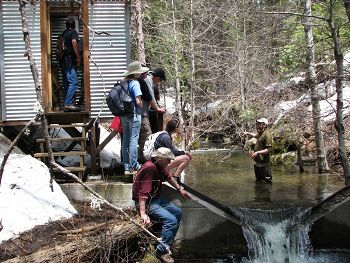Higher Education
© Southern Sierra Critical Zone Observatory
SSCZO is teaching and training the next generation of critical zone researchers. We offer a range of opportunities to learn about and participate in critical zone science through graduate student research, undergraduate assistantships, and university courses. Read below to learn more and get involved.
Graduate Research
Becoming a graduate student with SSCZO is joining a cross-disciplinary, cross-institutional network of researchers breaking ground in critical zone science. The graduate research group at SSCZO comprises students from a number of universities, including the University of Wyoming and several University of California campuses. Students not only collaborate on projects at SSCZO with researchers at other universities but also can conduct cross-CZO research at other observatories in the National CZO Program and at a growing number of international CZOs. Graduate researchers also work closely with other research and management organizations such as the USDA Forest Service Pacific Southwest Research Station and Lawrence Livermore National Laboratory.
Graduate students receive training in field, laboratory and computer research methods while advised by SSCZO investigators and collaborators. We offer opportunities and support for students to receive additional training through workshops and specialized short courses covering topics like wireless sensor network technology and near-surface geophysics. Our students present their research at conferences such as the American Geophysical Union and Ecological Society of America’s annual meetings, and author articles in high-profile journals such as Proceedings of the National Academy of Sciences and Water Resources Research.
Interested in graduate opportunities at SSCZO? Graduate research assistantships to work at SSCZO are obtained through research advisors’ home institutions. Start by looking at our current research projects and people involved to learn more about who we are and what we do. For questions or more information, please contact us.
Undergraduate Opportunities
Undergraduates can get involved in SSCZO work year-round through assistantships and fellowships at schools where our investigators, collaborators, and graduate researchers work. Faculty and staff at the University of California Merced, Davis, Irvine, Riverside, and Santa Barbara; University of Wyoming; University of Colorado Boulder; and several other universities conduct research at SSCZO sites or with our data. Assistantships can be field, modeling, laboratory, or outreach-based, depending on your interests and current work available.
We also offer summer fellowships for undergraduates through the National Science Foundation’s Research Experiences for Undergraduates program. Check our Opportunities page to see if we have any openings.
Our team teaches a number of classes related to critical zone science and research. Check out the next section to learn more about our courses.
Want to get involved? Email someone from our People page who works at your university, or email us for more information.
University Courses
Faculty who research at SSCZO and sister CZOs in the National CZO Program teach a number of courses related to critical zone science and research. Courses provide students with in-depth information of critical zone processes and hands-on experiences using professional research methods. A wide range of topics can be covered in courses related to the critical zone, such as geology, ecology, hydrology, soil science, sensing technology, field methods, climatology, and computer modeling. Students in these courses frequently use SSCZO data, models, findings, and technology, and may attend field trips to SSCZO research sites.
A selection of courses taught by SSCZO faculty are listed below.
University of Wyoming
Environmental Data Analysis (GEOL/ENR 4525/5525) Instructor: Riebe
Rates & Timescales of Surface Processes (GEOL 4760/5760) Instructor: Riebe
Water, Dirt, & Earth’s Environment (GEOL/ENR 1500) Instructor: Riebe
University of California, Berkeley
Design of Cyber-Physical Systems (Civ Eng 186) Instructor: Glaser
Engineering Geology (Civ Eng 70) Instructor: Glaser
Rock Mechanics (Civ Eng 171) Instructor: Glaser
Sensors and Signal Interpretation (Civ Eng 271) Instructor: Glaser
University of California, Davis
Environmental Monitoring (ESM 108) Instructor: Hartsough
Field Studies of Soils in California Ecosystems (SSC 105/205) Instructor: O’Geen
Soils in Land Use, and the Environment (SSC 118) Instructor: O’Geen
University of California, Irvine
Earth System Science Laboratory and Field Methods (ESS 114) Instructor: Goulden
Land Interactions (ESS 51) Instructor: Goulden
University of California, Merced
Critical Zone Science (ESS 192) Instructor: Asefaw Berhe, Conklin
Environmental Chemistry (ENVE 100) Instructor: Conklin
Environmental Systems (ES 200) Instructor: Conklin
Fundamentals of Soil Science (ESS 170) Instructor: Hart
Hydrology and Climate (ENVE/ESS 110) Instructor: Safeeq
University of California, Santa Barbara
Climate Change Impacts and Adaptation (ESM 237) Instructor: Tague
Environmental Modeling (ESM 232) Instructor: Tague
MESM/PhD Seminar: Topics include process hydrology, economic optimization of water resources, environmental research design, and others (ESM 595) Instructor: Tague
Students examine the snowpack as part of the UC Davis Field Methods Course.
UC Davis students dig a snow pit during the Field Methods trip.
Students take a standard measure of tree size, the diameter at breast height (dbh) during the UC Davis Field Methods Class.
Students sampling water in UC Merced's Field Methods for Surface Hydrology course.
UC Davis ESM108 course
© Southern Sierra Critical Zone Observatory
© Southern Sierra Critical Zone Observatory
News
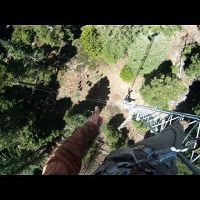
FEATURED
Southern Sierra CZO Videos
04 May 2020 - Onward California - University of California television spots showcase Southern Sierra CZO research
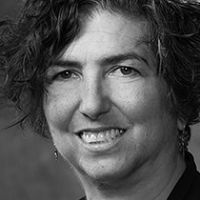
Congratulations Jill Marshall on receiving the 2018 Luna B. Leopold Young Scientist Award
06 Nov 2018 - Marshall Receives 2018 Luna B. Leopold Young Scientist Award
_200_200_80auto_s_c1.jpg)
Researcher Spotlight: Jeff Lauder
24 Oct 2018 - Meet forest ecologist Jeff Lauder! Lauder's research focuses on Sierra Nevada Conifers and how they have been responding to stress during drought!
Multiple postdoc and grad student opportunities at UC Merced
12 Sep 2018 - Two postdoctoral scholar positions and multiple MS or PhD research assistantships are currently available at the University of California, Merced....
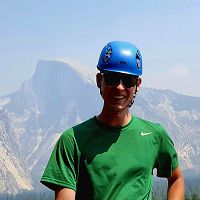
Researcher Spotlight: Russell Callahan
11 Apr 2018 - Meet the people behind the research! Russell uses a combination of geophysics and regolith geochemistry to understand landscape evolution.
_200_200_80auto_s_c1.jpg)
Research Program Updates: January 2018
17 Jan 2018 - Recent activities and findings, funding opportunities, upcoming events, and other updates
Explore Further
_900_391_80auto.jpg)
